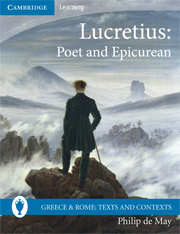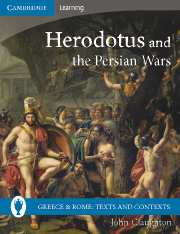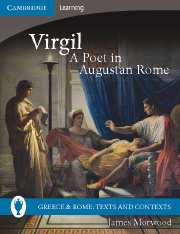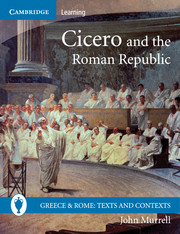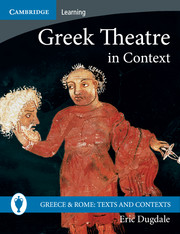Lucretius
Overview
What is the world made of? How can we be happy? What happens after death? Drawing on the philosophical teachings of Epicurus, Lucretius seeks to answer these and other big questions in his masterful poem 'On the nature of things'. This book offers a selection of key passages from the poem. In addition it gives students insight into its artistic inventiveness, provides a cultural and historical frame of reference, and offers access to the Epicurean philosophy underlying the poem.
Features
- Clear, user-friendly layout is accessible for a range of students, both Classicists and those studying more general topics in Classical and ancient history and civilisation.
- New translations of key passages of Latin and Greek written in approachable, readable English that can be easily accessed by all students.
- Translation and commentaries by key scholars in the Classical field provide readable, informative texts with broad appeal.
Contents
- Preface
- Introduction
- 1. The existence of atoms and void
- 2. Atomic motion, shape and properties
- 3. The nature of the spirit and mind
- 4. The processes of sensation and thought
- 5. Our world, the origins of life and civilisation
- 6. Phenomena of our world explained
- Recommended reading
- Glossary of people
- Index.
Brighter Thinking Blog
Keep up to date with the latest classroom tips and educational trends from our brighter thinkers.
Visit the blogCatalogues and Ordering
Looking for something in particular or just browsing? View our catalogues to see our full range of print and digital books.
View and downloadAdvice on useful tools
Advice on useful tools, activities and timetabling from teachers experiencing school closures.
Cambridge GO
All our supporting resources have now moved to Cambridge GO – the new home for your Cambridge digital content.
Listen to our podcast
Listen to our podcast to discover teaching inspiration & advice from leading educational thinkers.

